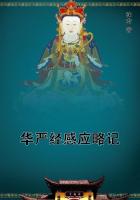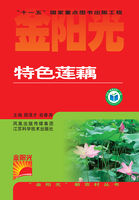Ideas or principles alone, however eloquently and insistently proclaimed, will not make a party.There must be organization.
Thus we have two distinct practical phases of American party politics: one regards the party as an agency of the electorate, a necessary organ of democracy; the other, the party as an organization, an army determined to achieve certain conquests.
Every party has, therefore, two aspects, each attracting a different kind of person: one kind allured by the principles espoused; the other, by the opportunities of place and personal gain in the organization.The one kind typifies the body of voters; the other the dominant minority of the party.
When one speaks, then, of a party in America, he embraces in that term: first, the tenets or platform for which the party assumes to stand (i.e., principles that may have been wrought out of experience, may have been created by public opinion, or were perhaps merely made out of hand by manipulators); secondly, the voters who profess attachment to these principles; and thirdly, the political expert, the politician with his organization or machine.Between the expert and the great following are many gradations of party activity, from the occasional volunteer to the chieftain who devotes all his time to "politics."It was discovered very early in American experience that without organization issues would disintegrate and principles remain but scintillating axioms.Thus necessity enlisted executive talent and produced the politician, who, having once achieved an organization, remained at his post to keep it intact between elections and used it for purposes not always prompted by the public welfare.
In colonial days, when the struggle began between Crown and Colonist, the colonial patriots formed clubs to designate their candidates for public office.In Massachusetts these clubs were known as "caucuses," a word whose derivation is unknown, but which has now become fixed in our political vocabulary.These early caucuses in Boston have been described as follows: "Mr.
Samuel Adams' father and twenty others, one or two from the north end of the town, where all the ship business is carried on, used to meet, make a caucus, and lay their plans for introducing certain persons into places of trust and power.When they had settled it, they separated, and used each their particular influence within his own circle.He and his friends would furnish themselves with ballots, including the names of the parties fixed upon, which they distributed on the day of election.By acting in concert together with a careful and extensive distribution of ballots they generally carried the elections to their own mind."As the revolutionary propaganda increased in momentum, caucuses assumed a more open character.They were a sort of informal town meeting, where neighbors met and agreed on candidates and the means of electing them.After the adoption of the Constitution, the same methods were continued, though modified to suit the needs of the new party alignments.In this informal manner, local and even congressional candidates were named.
Washington was the unanimous choice of the nation In the third presidential election, John Adams was the tacitly accepted candidate of the Federalists and Jefferson of the Democratic-Republicans, and no formal nominations seem to have been made.But from 1800 to 1824 the presidential candidates were designated by members of Congress in caucus.It was by this means that the Virginia Dynasty fastened itself upon the country.The congressional caucus, which was one of the most arrogant and compact political machines that our politics has produced, discredited itself by nominating William H.Crawford (1824), a machine politician, whom the public never believed to be of presidential caliber.In the bitter fight that placed John Quincy Adams in the White House and made Jackson the eternal enemy of Clay, the congressional caucus met its doom.For several years, presidential candidates were nominated by various informal methods.In 1828 a number of state legislatures formally nominated Jackson.In several States the party members of the legislatures in caucus nominated presidential candidates.DeWitt Clinton was so designated by the New York legislature in 1812 and Henry Clay by the Kentucky legislature in 1822.Great mass meetings, often garnished with barbecues, were held in many parts of the country in 1824 for indorsing the informal nominations of the various candidates.
But none of these methods served the purpose.The President was a national officer, backed by a national party, and chosen by a national electorate.A national system of nominating the presidential candidates was demanded.On September 26, 1881, 113delegates of the Anti-Masonic party, representing thirteen States, met in a national convention in Baltimore.This was the first national nominating convention held in America.
In February, 1831, the Whig members of the Maryland legislature issued a call for a national Whig convention.This was held in Baltimore the following December.Eighteen States were represented by delegates, each according to the number Of presidential electoral votes it cast.Clay was named for President.The first national Democratic convention met in Baltimore on May 21, 1882, and nominated Jackson.
Since that time, presidential candidates have been named in national conventions.There have been surprisingly few changes in procedure since the first convention.It opened with a temporary organization, examined the credentials of delegates, and appointed a committee on permanent organization, which reported a roster of permanent officers.It appointed a committee on platform--then called an address to the people; it listened to eulogistic nominating speeches, balloted for candidates, and selected a committee to notify the nominees of their designation.















